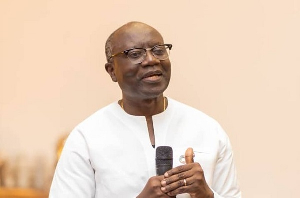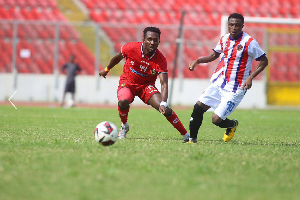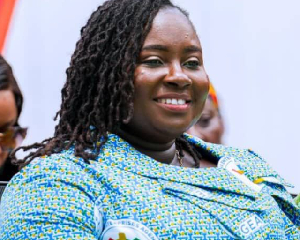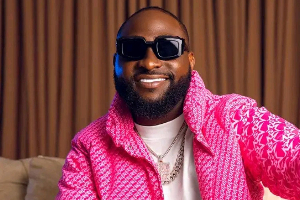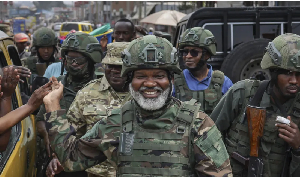By Frank S. Debrah
Groucho Marx, a witty American film star and comedian, once said that “politics is the art of looking for trouble, finding it, misdiagnosing it, and then misapplying the wrong remedies”. In Ghana today, a peculiar kind of corrosive politics has been slowly allowed to cast a monstrous shadow over the national development agenda. I am talking of course about patronage politics at the presidency. It often manifests itself through the appointment of individuals to positions of power on the basis of political affiliations rather than merit, as measured by objective criteria. It is also characterized by the use of state resources to reward individuals, groups and private companies for their electoral support.
In Ghana, the wanton consolidation of power at the executive branch of government has rendered the presidency the chief source of patronage. How is this possible? In well-functioning democracies the legislature and the judiciary serves as a counter weight to the executive. But in our country, parliament is incapable of providing an effective oversight. It lacks a vibrant committee system; it is not authorized to introduce financial bills; and some parliamentarians are often beneficiaries of presidential patronage so they are unable to closely scrutinize the president’s agenda. On the other hand, the judiciary is fairly free from political control; however, the legal process is cumbersome.
Thus, presidential patronage permeates even the remotest part of the country. How? Imagine a country where the president directly appoints 4,050 individuals at various administrative positions, including the executive managers of all 110 district assemblies. Imagine a country where about a third of supposedly bipartisan local institutions are appointed by the president. Imagine further a country where the only source of revenue for local government administration originates directly from the presidency, amounting to 7 percent of annual government expenditure.
Why is this big deal? You might ask. It is a big deal because such an expansive power of appointments makes the presidency a magnet for political patronage. Until a while back I was loosely privy to the Ghanaian political jargon “jobs for the boys” but I never really understood what the fuss was all about until I took a look at the powers of the presidency. Given its enormous powers, people will do anything to placate the president because there is a huge potential for rewards. Loyalists and bootlickers can expect to gain positions either in the administration or within the public service. Companies can expect to gain lucrative contracts without competitive bidding.
Have you ever wondered how we get our numerous presidential aides and advisors at the Castle? Ever wondered why former President Kuffour had multiple deputy ministers in the same ministry? Why was former President Rawlings so miffed at the current president for not promptly replacing all DCE’s when the NDC assumed power in 2009? Who are these so called ‘party foot soldiers’ and why the clamour for them to be ‘taking care of’? Will Mr. Woyome had been paid that so-called ‘judgement debt’ in a manner in which he was if he had been an NPP financier? Why do you think our MPs disgustingly insult each other on radio stations and national television? Do they do it out of conviction for their party ideology or do they do it in order to attract the attention of party bigwigs?
If you have ever asked yourself any of the questions above or similar, you must look no further than the patronage system for answers. Don’t get me wrong, patronage may be acceptable at the highest level of government. After all, presidents are entitled to choose their cabinet members. However, conventional wisdom dictates that a patronage system extending far down the organizational chain, in a manner that is characteristic in Ghana, is susceptible to inefficiency and corruption. Moreover, it can be linked to institutional decay, create poor incentives for economic planning and fuel ethnic divisions. Let me explain.
First, patronage politics corrodes national institutions. Because of the nature of the system, national institutions tend to be dependent on the ruling political party. The civil service often becomes a casualty of presidential purging. Unfortunately, automatic dismissal and replacement of national media heads, senior military, police and custom officers etc whenever there is a change in government damages the professionalism of the public service and the security institutions. These institutions exist to serve Ghana and not the party in power therefore they must be insulated from party politics.
Second, patronage politics creates a perverse incentive for industry and commerce to lobby government officials, often through corrupt means, in order to secure state contracts. Businesses operating in such an environment become fully aware that they do not necessarily have to outbid their competitors in order to gain contracts. Neither do they have to trump their efficiency or competency card. The risk to business is not failure to innovate but failure to please the president. In the end the company that constructed that shoddy road a year ago, which is now full of potholes, is the same company that is awarded the next road construction project. Nobody loose in this transaction but Ghana!
Third, patronage politics encourages politicization of ethnicity. In a country as ethnically diverse as Ghana, patronage politics creates a situation where political loyalty is gained and offered along ethnic lines. All over the country there exist latent tensions arising from the perception that opportunities and resources from the presidency and the ruling party are granted disproportionately along ethnic lines. No wonder the Volta region has been dubbed “NDC World Bank” whereas the Ashanti region forever remains a stronghold of the NPP. Over the years, presidential patronage has contributed to the mistrust between these two regions. For example, in an effort to shake the ethnic makeup of the Ghana Armed Forces, dominated by Ewes, President Kuffour instituted measures to revise the scheme that the military use to hire and promote soldiers. However, when the NDC took over the reins of power, President Mills immediately reversed the initiative and the military heads that cooperated with President Kuffour were purged from the GAF.
Without a doubt the current system in Ghana is highly centralized and is carefully structured to preserve the interest of the presidency. The price for this has been corruption, ethnic rivalry, institutional decay and bad governance. Patronage from the presidency turns politics into a zero-sum game whereby the presence of one party in power automatically seizes a meaningful opportunity for a sizable portion of the population. Such power struggles can be dangerous as there is always a chance that one party will dispute the results of an election irrespective of whether they are organized in a free, fair and transparent manner. Let’s hope that the recent constitutional review paid adequate attention to the need to decentralize power away from the presidency. A wise man once said that power tends to corrupts but absolute power corrupts absolutely!
Frank S. Debrah
Vancouver, Canada
Opinions of Wednesday, 11 January 2012
Columnist: Debrah, Frank S.






